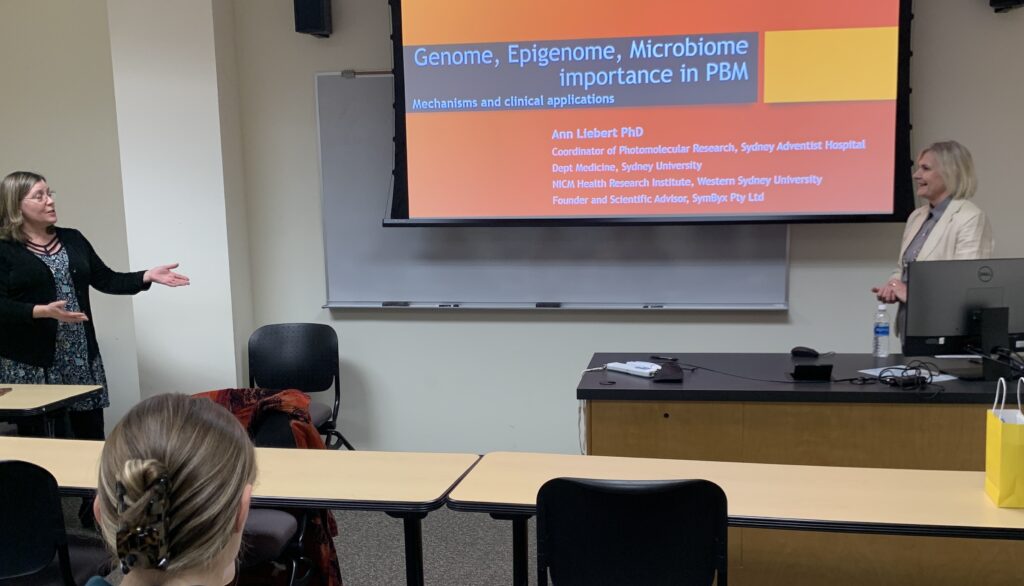A group of nursing students at Shepherd University got a close up look Wednesday at a form of light healing therapy.
Renowned Australian scientist Ann Liebert spoke with students in the Doctor of Nursing Practice program about photobiomodulation (PBM).
“As a researcher and a person that has been doing this for a long time, I really want to excite and be part of any research that’s going on and to mentor and to demonstrate to any of the nurses, physicians or other practitioners that we have here,” Liebert said.
Light therapy has been around since the 19th century, and has been used to treat pain and inflammation, PBM uses infrared laser light to increase cellular metabolism and speed up patients’ healing processes.
Liebert is a clinician and scientist from the University of Sydney, who researches and uses the practice in her own work. Currently the director and chief researcher at medical technology company SYMBYX Biome, she has studied its effects on more serious, chronic pain conditions, like fibromyalgia and migraines, as well as neurological diseases like Alzheimers and Parkinson’s.
“There’s been increasing evidence, especially over the last five years, that it can help in recovery of wounds and injuries that are chronic,” Liebert said. “And these chronic conditions affect people’s quality of life.”
Advocates for PBM say it’s important to equip nursing students with this sort of knowledge, especially in rural, aging states like West Virginia where access to specialized care is limited.
“It’s another way to really help give them some tools in their toolbox for when they graduate and become family nurse practitioners, especially in rural West Virginia, where, you know, access to special care sometimes is limited for some people,” said nursing professor Kelly Watson Huffer. “We’d like to just equip them with as much knowledge as we can for non-invasive ways to improve healthcare.”
The visit comes after the university opened its own PBM clinic last March.




















